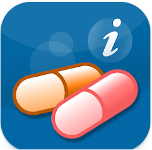Patient Safety
Patient safety is defined as “the pursuit of the reduction and mitigation of unsafe acts within the healthcare system, as well as the use of best practices shown to lead to optimal patient outcomes”. Everyone involved in patient safety, including patients, residents, clients and their families and healthcare professionals need to be aware of patient safety issues, mitigation strategies, and best practices for ensuring safety for everyone. (Canadian Patient Safety Institute)
A high quality and safe environment for our patients, residents and clients is a priority for Riverside. Best practices such as falls prevention, medication reconciliation and ongoing monitoring of trends are seen throughout Riverside to ensure patient safety is a priority.
Riverside partners with many patient safety organizations, including Healthcare Excellence Canada, Accreditation Canada, Canadian Patient Safety Institute, Institute for Safe Medication Practices Canada, Choosing Wisely Canada and Infection Prevention and Control Canada to name a few.
Patients and Families are members of our health care team. Be active in your care and safety with these tips:
- Give information to your health care team about your medical history and any medications you are taking. Include any vitamins, minerals, herbal supplements, and over the counter medications, as well as any substance use such as alcohol & marijuana including edibles or illicit drug use. We strongly encourage you to keep an accurate list with you at all times for reference in case of an emergency.
- Report any changes in your condition to a member of the health care team – nurses, doctors, or other health care professionals.
- Ask for help if you need assistance moving to another location or if something is out of reach.
- Ask questions about your condition, treatment plan and goals of care so you fully understand your condition and the next steps. Ask questions such as:
- Why do I need to do this?
- What will it involve?
- Is there anything else I can do to improve my condition?
- Ask questions about your medications: if they have changed, which ones you continue taking, understand why you are taking them, how to properly take them, how to monitor if they are working, potential side effects to watch for and any follow up appointments or tests that may be required.
- Listen to everything your healthcare provider tells you. If you do not understand something, ask for it to be explained until you do understand.
- Have a family member or friend present to assist and advocate for you when talking with your health care provider. They can help listen and write down any important information for you.
- When being discharged from the hospital, ask what you have to do at home, when follow up appointments will occur and understand the medications you are prescribed and how to safety take them.
- Prevent transmission of infections by washing your hands. It's ok to ask your health care team if they have washed their hands before touching you.
- Encourage family and friends to stay home or seek medical attention if they are sick or feeling unwell.
- If something doesn’t seem right, don’t just think it, say it. Report it to a member of your health care team.
Medication Safety
5 Questions to Ask - ISMP Canada (ismp-canada.org)
 MyMedRec is a portable medication list that can be easily shared with your family, doctor, nurse, pharmacist or anyone else involved in your health care. It can be used to keep track of the medicines that you and/or your family members are taking and many other elements related to your health.
MyMedRec is a portable medication list that can be easily shared with your family, doctor, nurse, pharmacist or anyone else involved in your health care. It can be used to keep track of the medicines that you and/or your family members are taking and many other elements related to your health.
MyMedRec app can be found in the Apple App Store and Google Play
Preventing Falls
Fall Prevention Month
Public Reporting of Patient Safety Indicators
RHC strongly supports the public reporting of patient safety indicators because we believe it will inspire improved performance, enhance patient safety, and strengthen the public's confidence.
Patient Safety Indicators | Riverside Health Care
Patient Declaration of Values, Resident Bill of Rights, Client Bill of Rights
Patient Information | Riverside Health Care
Please view our Patient Information Handbook for more information.